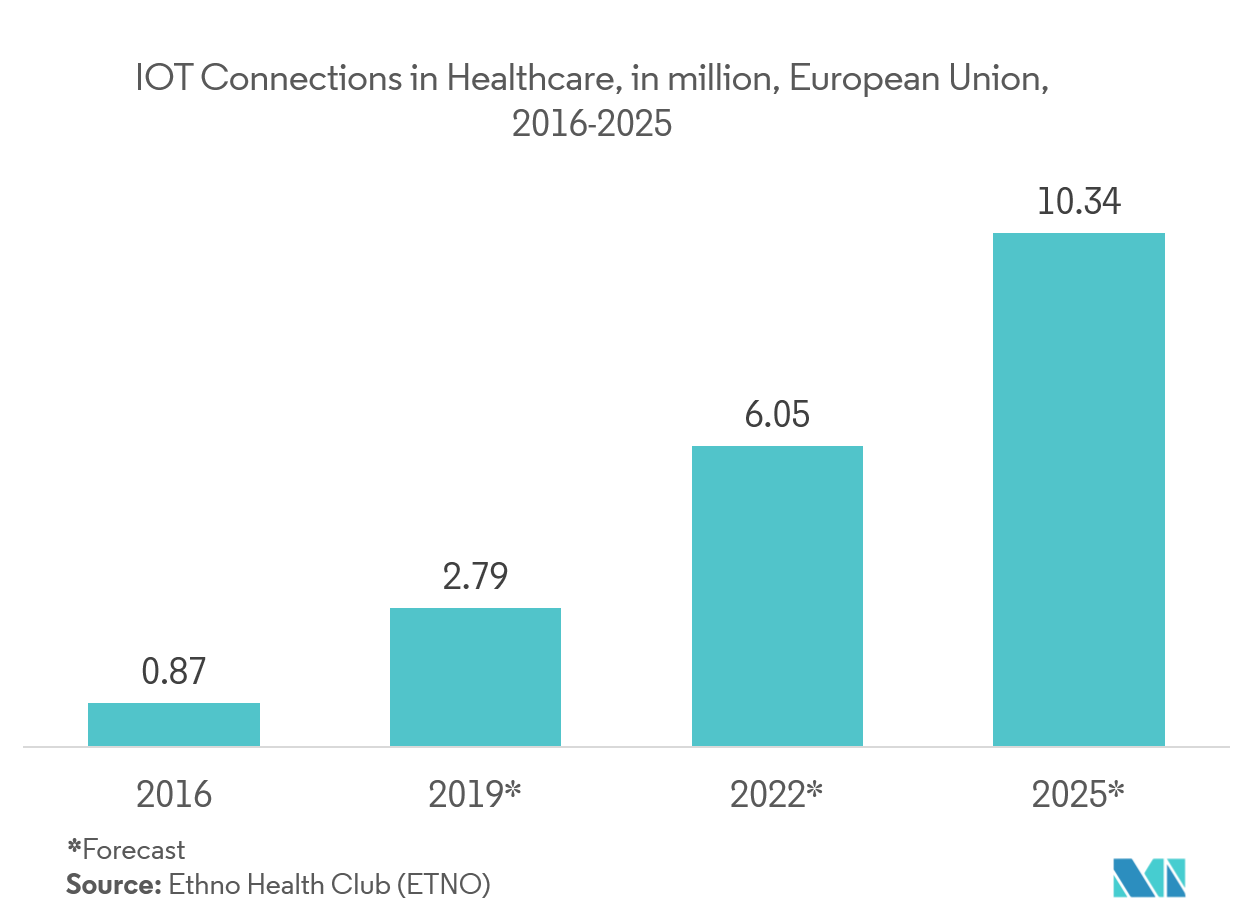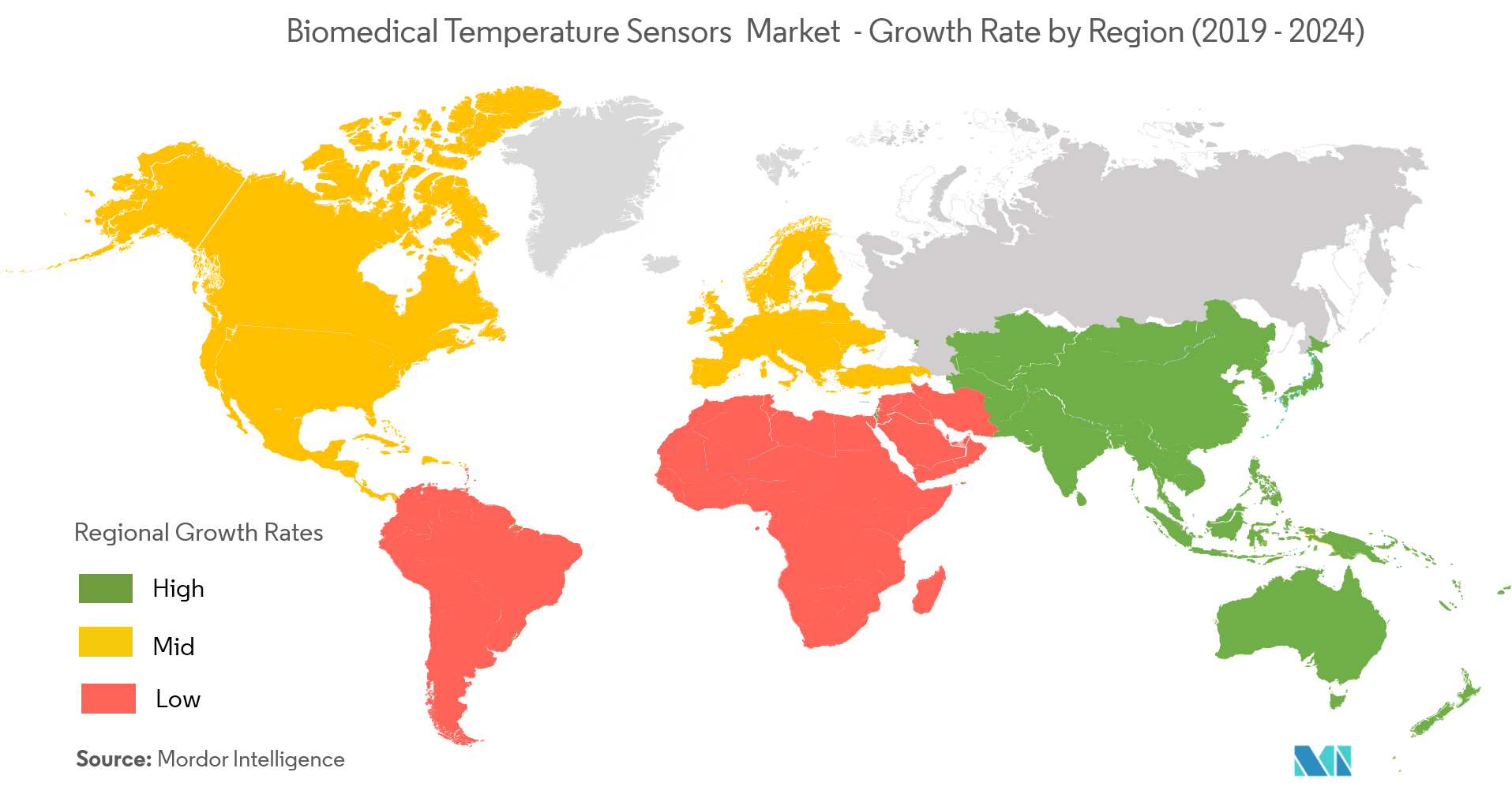Market Trends of Biomedical Temperature Sensors Industry
This section covers the major market trends shaping the Biomedical Temperature Sensors Market according to our research experts:
Fiber Optic Sensors (FoS) is Expected to Hold a Significant Share
- Fiber optic probes undergo total internal reflection and aid in possible future biomedical applications to carry out the simultaneous collection and analysis of samples for drug safety evaluation. It also helps in the sensing of biomolecules, identification of drug molecules, effluent monitoring, and overall pharmaceutical quality control of the product.
- Biomedical FOS can be categorized into four main types: physical, imaging, chemical, and biological. Meanwhile physical sensors measure a variety of physiological parameters, such as body temperature, blood pressure, and muscle displacement, imaging sensors encompass advanced techniques, such as optical coherence tomography(OCT) and photoacoustic imaging.
- Chemical sensors rely on fluorescence, spectroscopic, and indicator techniques and biological sensors tend to be more complex and rely on biologic recognition reactions, such as enzyme-substrate, antigen-antibody, or ligand-receptor.
- Moreover, IoT applications can save the lives of patients with a fast diagnosis of diseases, as well as finding an apt cure for it. FOS are the devices, which are capable of monitoring a specific biomedical variable and provide information that can give a rapid and accurate diagnosis of a patient's health condition. Therefore, the growing adoption of IOT in healthcare industry is penetrating the usage of fiber optic sensors.
- Recently, the European Union (EU) has also proposed to employ advanced technological devices and platforms to ease their primary healthcare functions, such as medical equipment for tele-monitoring and tele-diagnosis, system for patients to register their physiological measurements, and telehealth equipment, like sensors, which majorly use fiber optics sensors.

North America is Expected to Lead the Market
- Due to increasing need for medical services in the United States, North America is expected to experience lucrative growth, as the medical sensor providers are focusing on developing high value-add equipment catering to the rising needs. On the other side, stringent government guidelines across the region, along with the growing healthcare sector, are expected to trigger the growth of the market in this region.
- The US health expenditure increased by 5.3% in 2018, reflecting growing prices of medical goods and services and higher medicaid costs. The increase represents a sharp turn from 2017 spending, which the US Centers for Medicare and Medicaid Services (CMS) agency, in 2018, estimates to have been a 4.6% increase, to nearly USD 3.5 trillion.
- Additionally, the healthcare industry across the region is also making use of temperature sensors extensively for continuous biological cardiac output monitoring, thermal dilution catheters, etc.
- With such advancements across the healthcare industry in the region, coupled with various types of temperature sensors being integrated into more products, the market for temperature sensors is set to grow at a healthy rate.


